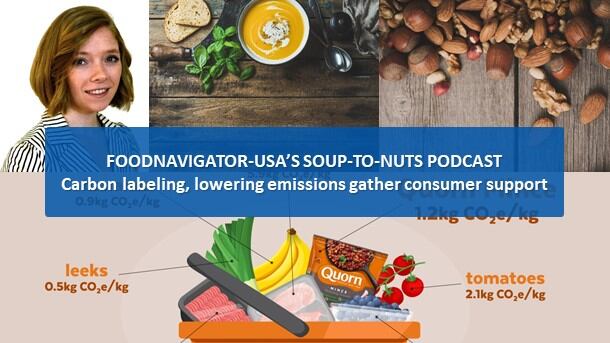In comments submitted to the Federal Trade Commission late last week, CBA also urged the FTC to update its Guides for Use of Environmental Marketing claims to address emerging technologies and digital labeling tools and “ramp up interagency collaboration” for more consistency and enforcement to “enhance consumer protection efforts.”
The trade group adds in the comments that it “wholeheartedly supports” FTC’s intention to review and update its Green Guides as “clear guidance on the nondeceptive use of environmental marketing claims will protect consumers and foster innovation,” and help all stakeholders meet rising consumer interest in the environmental impacts of their purchasing decisions.
It explains, in the ten years since the Green Guides were last updated “significant developments have occurred … including but not limited to greater industry action to mitigate environmental impact, an expansion of efforts to communicate environmental benefits to consumers, and growing interest among consumers, investors and other stakeholders in the environmental impacts of products and services.”
For example, CBA points to research that shows since 2012, nearly 80% of consumers have become increasingly interested in purchasing products form environmentally friendly companies, yet many do not understand environmental impact. Likewise, “societies increased focus on plastic waste and circularity, and increasing regulation of recycling and recycled content, have led to increased use of recyclable and recycled content claims by marketers.”
And while many companies and consumers want to do the right thing, conflicting regulations and uncertainty or lack of consistent definitions for such claims complicates follow through, CBA says.
As such, the trade group urges FTC to undertake “robust consumer perception research” and host public workshops focused on certain claims to inform its efforts to modernize the Green Guides.
How consumers interpret 'net zero,' 'carbon neutral,' 'low carbon' and other climate change claims is unclear
Armed with additional consumer research, CBA also encourages FTC to complement its existing guidance on carbon offsets and renewable energy claims with guidance for the accurate use of other climate change claims.
“The Guides currently do not offer guidance related to the majority of climate change claims. These claims, including ‘net zero,’ ‘carbon neutral,’ ‘low carbon’ and ‘carbon negative,’ have become popular in recent years,” but it is unclear how consumers interpret these claims, CBA writes in its comments.
“Where possible, the update to the Green Guides should identify reasonable consumers’ interpretations of these claims, circumstances under which qualification would be necessary to avoid consumer deception, and examples of appropriate qualifications,” it adds.
CBA encourages FTC to consider existing definitions for ‘net zero,’ ‘carbon neutral’ and ‘low carbon, which often are linked to public policy and other regulations.
Guidance for use of digital labeling tools needed
Given the complexity of some climate change claims and sustainability efforts, CBA also encourages FTC to address emerging technologies, such as digital labeling tools like SmartLable, which could provide additional information online about claims and guidance to consumers.
“Marketers now increasingly rely upon marketing on mobile devices where space is constrained, and consumers now regulatory shop in person and online using mobile phones,” argues CBA, adding that since the pandemic most American adults are familiar with the use of QR codes.
“We urge the FTC to update the Guides to provide examples of how marketers could use on-pack digital triggers to supplement environmental marketing claims and effectively qualify claims,” writes CBA.
It specifically calls out the use of SmartLabel, which it helps operate, as a tool for further dialogue about environmental and sustainability claims.
FTC should work with EPA, other federal agencies to update guides
While the Green Guides are well-respected and often form the foundation for marketing and enforcement efforts, they do not carry the weight of regulations nor pre-empt state laws. And while CBA believes the Guides should remain non-binding guidance, in order to facilitate flexibility, it notes that they compete with “a patchwork of state laws.”
“With this in mind, we suggest that updates to the Green Guides be undertaken as collaborative efforts with [the Environmental Working Group], especially around quasi-definitional frameworks that accompany the various environmental benefit claims,” CBA writes.
It also encourages FTC to “ramp up interagency collaboration with other federal agencies grounded in environmental policy expertise to enhance consumer protection efforts.”




